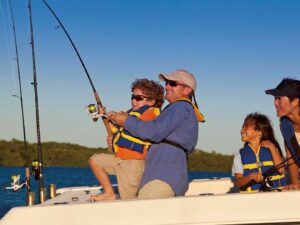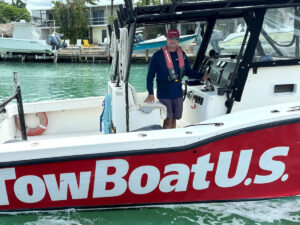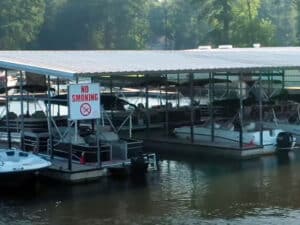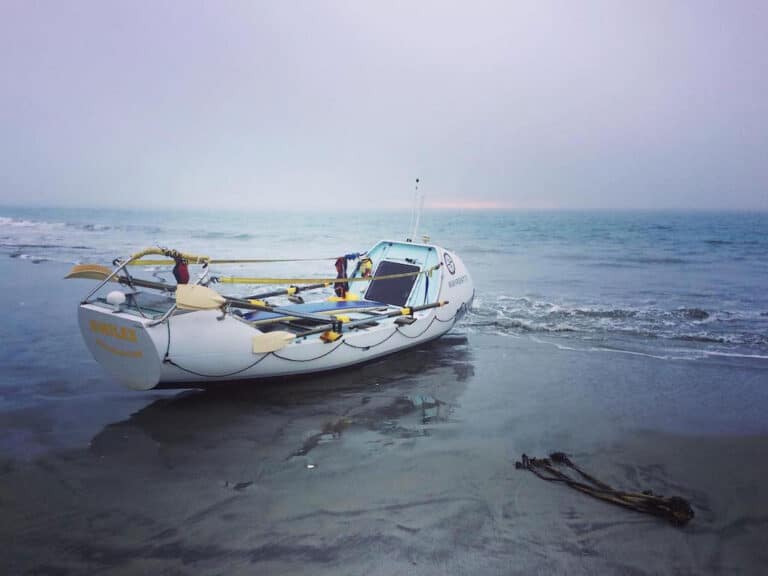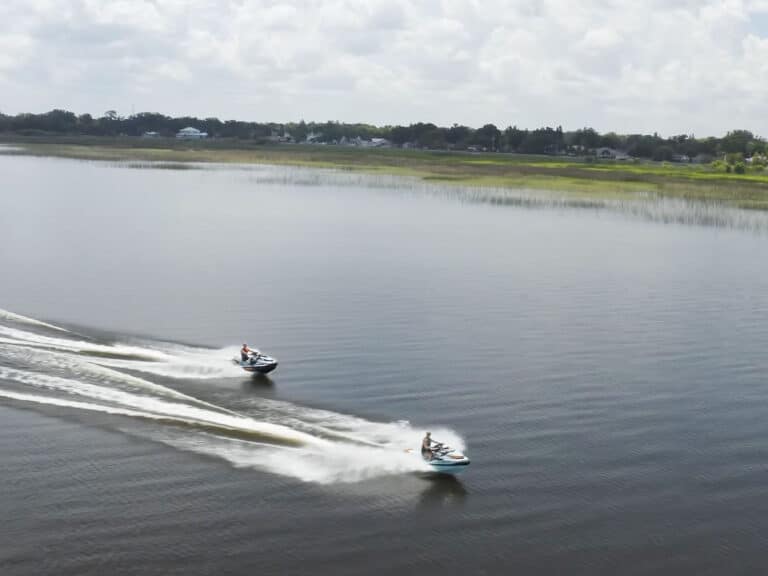Digital Selective Calling (DSC) has become increasingly popular on VHF marine radios in recent years. DSC-capable VHF radios allow boaters to send and receive digital messages, including distress calls. This can be a lifesaver in an emergency, as it allows boaters to quickly and easily identify each other and coordinate rescue efforts. In this article, we delve into the world of DSC-capable VHF radios and emphasize the importance of registering a Maritime Mobile Service Identity (MMSI).
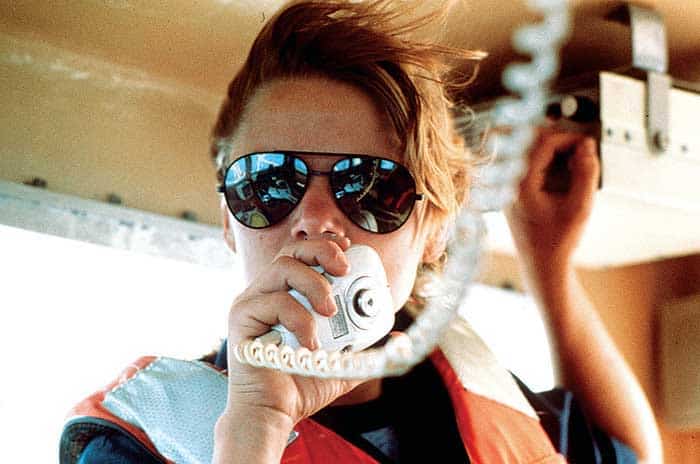
The Power of DSC: Digital Selective Calling (DSC) technology has revolutionized the way mariners communicate at sea. Unlike traditional VHF radios, DSC-capable radios incorporate advanced features that enable distress signaling, position sharing, and selective calling with unparalleled precision and reliability. These radios offer a significant advantage during emergencies, allowing boaters to send automatic distress alerts at the touch of a button, facilitating prompt search and rescue operations.
It’s A VHF Radio: Before we dive into the unique features and capabilities of DSC-equipped VHF radios, let’s take a moment to remember their most important function: They are VHF radios. VHF is the gold standard for maritime communications, whether that means hailing the harbormaster for dinner reservations or making a Mayday call that could save your life. Mariners should always keep their radios tuned to Channel 16, the international hailing and distress channel. Monitoring Channel 16 allows boaters to receive important safety announcements, navigational warnings, and emergency calls from the Coast Guard and nearby vessels. Not only does it enhance your own safety, it allows you to help other mariners should the need arise.

Effortless Communication: VHF radios provide clear and efficient communication over short and moderate ranges. With the ability to transmit and receive voice messages, they serve as the backbone of marine communication networks, connecting mariners, harbormasters, and emergency services alike. Adding DSC capability ensures that crucial information such as weather updates, navigational warnings, and local traffic conditions can be shared quickly. All this contributes to a safer and more informed boating community.
MMSI Registration: To fully harness the capabilities of DSC-capable radios, it is imperative to register for a Maritime Mobile Service Identity (MMSI). The MMSI is a unique nine-digit number assigned to vessels and boaters, similar to a phone number, that identifies the caller and ensures accurate communication. This registration process links vital information, such as vessel name, owner’s details, emergency contacts, and radio capabilities to the assigned MMSI, enabling swift and accurate assistance in times of distress.
Registering for an MMSI is a straightforward process. This U.S. Coast Guard webpage will guide you through it. Just fill in a few details about yourself and your vessel, and you will be assigned an MMSI that becomes an integral part of your boat’s identification. Be sure to affix the MMSI prominently on your vessel and program it into your DSC-capable VHF radio to ensure seamless communication and accurate distress signaling.
With Great Power Comes Great Responsibility: If you sell your boat or radio, or move your radio to another vessel, it’s essential to cancel your MMSI registration or transfer it to the new owner. If you don’t cancel or transfer your MMSI registration you could be held liable if the new owner improperly transmits a distress alert using the radio. The Coast Guard has issued a bulletin detailing how to keep your registration current, and why it matters.
Enhanced Safety and Peace of Mind: Equipping your boat with a DSC-capable VHF radio and registering for an MMSI is an essential investment in your safety and the safety of your fellow boaters. Every second counts in an emergency, and the rapid transmission of distress signals through DSC technology significantly improves the chances of a successful rescue.
Improved communication: DSC radios allow you to call other boats without hailing them on an open frequency. Simply enter the other vessel’s MMSI into your DSC radio’s directory or contact list, select the contact and channel you want to speak with them on, and then press the “Call” button. When the other vessel accepts your request both radios will switch to the desired channel, and you can start talking normally. This keeps hailing frequencies clear and makes contacting friends and other vessels a snap.
GPS Enabled: To transmit your vessel’s location, a DSC-equipped radio needs to have an integrated Global Positioning System (GPS) receiver or be connected to a GPS device such as a chartplotter. Most new DSC-capable VHF radios have GPS built in – even some handheld units. Many of these sets also offer additional features like waypoint navigation. If your DSC-capable radio doesn’t have its own GPS receiver, never fear. Connecting a radio to your nav system is a lot easier than it sounds. For most systems it’s a matter of connecting two wires. Check your owner’s manual for instructions specific to your radio.

DSC-capable VHF radios have transformed marine communication by providing boaters with a powerful tool to stay connected and safe on the water. Registering for an MMSI allows mariners to unlock the full potential of the technology, enabling efficient distress signaling, selective calling, and seamless integration with search and rescue operations. Prioritizing safety and adhering to communication protocols ensures a smooth boating experience and promotes a responsible boating community dedicated to safeguarding lives at sea. So before your next outing, equip your boat with a DSC-capable VHF radio and don’t forget to register your MMSI.

